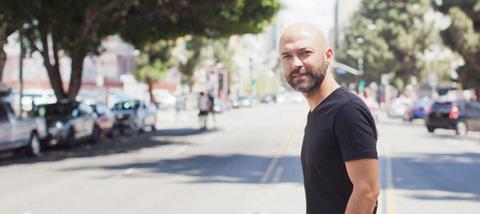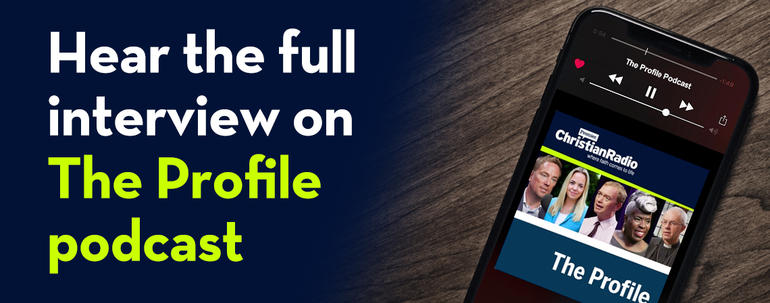I Kissed Dating Goodbye changed the way a generation of Christians thought about sex, relationships and purity. But two decades on, intense criticism has led Joshua Harris to pulp his bestselling book and issue an apology

Anna stands at the altar on the day she has dreamed about for months. The church is crowded with family and friends. But as the minister leads Anna and David through their marriage vows, the unthinkable happens. A woman stands up in the middle of the congregation, quietly walks to the front and takes David’s hand. Anna watches in horror as six others follow suit. “Is this some kind of joke?” she says. “I’m…I’m sorry Anna,” he answers, staring at the floor. “Who are these women?” she asks. “They’re girls from my past. Anna, they don’t mean anything to me now, but I’ve given part of my heart to each of them.”
This was the parable that opened Joshua Harris’ international bestseller I Kissed Dating Goodbye. First released in 1997, the book warned that dating could cause irreparable emotional damage. The solution was to embrace courtship – where couples pursue friendship before romance, and parents are given permission to offer advice and help guide the relationship. Harris also advocated for strict boundaries within this: no kissing, no holding hands and no being alone together before you tie the knot. Perhaps most famously, he recommended only beginning a relationship with someone if you could picture yourself marrying them in the near future.
Many of these ideas were already popular in the home-schooled, Bible belt American context that Harris grew up in. But to the wider Christian world (and the secular media, who were understandably intrigued by Harris) this teaching was brand new, not to mention radical. I Kissed Dating Goodbye sold more than 1 million copies and was passed around many Christian youth groups – including the one I attended here in the UK – throughout the late 1990s and early 2000s. Harris was just 21 years old when IKDG was published, but the book quickly became the most popular resource for a growing movement of Christians, which at its best, guided teenagers towards sexual abstinence, and at its worst, heaped shame and condemnation on young people who had been sexually active.
It took weakness and failure to get me to a place where I was willing to open myself up to the possibility of being wrong
If you’ve ever come across purity rings (which are worn as an outward sign of a vow to practise abstinence until marriage) or been on the receiving end of teaching that says women should cover up in order to protect men’s minds, then you’ve encountered what’s been dubbed ‘purity culture’. Most Christians, including Harris, would agree sex is best saved for marriage, but the way that message has been communicated has proved controversial in the years since IKDG.
Harris went on to get married, start a family and become a pastor of an American megachurch. Meanwhile, the voices of those who say they’ve been damaged by the ideas in IKDG were amplified through the advent of blogs and social media. At first he ignored the push-back, but tweets such as “your book was used against me like a weapon” mounted up and, eventually, he was forced to consider if a book written to help young people live for God had actually caused more harm than good.
Seeking a “bigger perspective” and acknowledging he’d lived life “backwards” by entering ministry before receiving any form of theological education, in 2015 Harris moved his family to Canada and enrolled at Regent College, Vancouver. While there, he met filmmaker and fellow student Jessica van der Wyngaard. Two decades on from reading IKDG and following the ‘rules’ contained therein, Jessica was still single. “I was doing everything right, where was my future husband?” she wondered. “I wanted to make a documentary so a greater spectrum of Christian voices could be heard on this important topic. Thanks to the divine timing of God, Joshua Harris came to Regent College as a new seminary student at precisely the time I was considering making such a film.”
The end result of Jessica and Joshua’s collaboration is now available to watch online (and Harris won’t make a penny from the kickstarter-funded I Survived I Kissed Dating Goodbye - available at isurvivedikdg.com). Throughout the 77-minute production, which sees him sitting down with his fiercest critics, asking intelligent questions and, perhaps most importantly, listening to their responses, Harris appears contrite, genuine and relatable. You might even end up feeling sorry for him. He seems remarkably well-intentioned, and has the heart of a pastor (I was surprised to hear he’s since decided to quit full-time ministry for good and is now running a marketing company).
After much speculation, Harris finally vowed to discontinue the publication of IKDG. His later books Boy meets girl (2000) and Not even a hint (2003) will also no longer be available. In a statement released last October Harris said of IKDG: “I no longer agree with its central idea that dating should be avoided. I now think dating can be a healthy part of a person developing relationally and learning the qualities that matter most in a partner.”
“To those who read my book and were misdirected or unhelpfully influenced by it, I am sincerely sorry…
And to those of you who benefitted from my book, I am so grateful that something I wrote helped you. The fact that a flawed man could write a flawed book and somehow that could help some people is amazing to me. But, to borrow an analogy from the automotive industry, if a car serves some people but a flaw in its design causes damage to others, good intentions by the carmaker and even the endorsement of other customers don’t override the problem.”
You were 21 years old when the book was published. What happened before that?
I had been in the dating scene, had different girlfriends and had reached a point where relationships were the one area in my life that I wasn’t willing to consider in light of my Christian faith. When I ended a relationship with a girl that I’d been going out with for several years, I felt a real sense of conviction that I had mistreated her, that I had used her, that I had broken a lot of promises. I was very disillusioned and began to interact with other people my age about this topic. At that time, in the world that I was in, the idea of courtship, this idea of more purposeful relationships, was quite popular and I began to put that in my own words.
What was the central point of IKDG?
I think what my book was doing was taking all the teaching about the dangers of sex outside of marriage and backing that up by saying: “Well, if that’s true and we want to avoid that, then we should also avoid everything that leads up to that consequence. Don’t just get close to the line, stay as far away from the line as possible!”
What do you think now about the opening story – where all those other women stand next to David on his wedding day, because he’d dated them in the past?
I think my writing really lacks nuance and balance, and for a lot of really impressionable young people it created a sense of real fear, and that had a negative impact on their view of relationships. Yes, there can be regret [about past relationships], but this mindset is more helpful: “I’m still a complete person and I’m loved and accepted by God. These choices are not the defining qualities of who I am.”
When did you first start to notice there were a lot of people who were hurt by the book?
I remember reading criticism early on but I had people around me at the time who were saying: “You just need to stand your ground”, “You need to be a strong leader”, “You’re too worried about people’s criticism.” So I shoved all that aside.
You can’t measure the results of the book after only a year. But after 15 years went by, people who adopted these ideas and tried to put my book into practice suddenly had a track record. There’s data – whether that’s people saying: “This helped me get out of an unhealthy lifestyle, and I married my spouse because this book gave me good insight,” or people saying: “Hey, this didn’t work – this actually damaged me. This traumatised me.”
Those voices began to be heard online, but honestly, I didn’t pay enough attention. That’s one of the regrets that I have. I think it was easy for me to just write people off as haters.
When you did start listening, what were the most common objections to the book?
An unhealthy view of romance and sexuality – in particular the idea that the human heart is this limited resource so don’t give some of it away. Also this idea of being damaged or having lost something. I think another big problem is, people made a potential relationship so serious, so soon. Instead of just saying: “I want to take the time to get to know you, and I want to make a really informed decision about who I marry,” there was a sense of: “This needs to be serious from the get-go.”
Some people have said the book comes across as legalistic and lacking in grace…
I had a whole chapter – probably one of the highlights of the book – that talks about Jesus covering all of our mistakes and that his grace is what makes it possible for us to move forward and so on…
Oh, so did those critics miss that chapter then?
Well, it’s an interesting thing with grace, because you can have the right qualifying statements or a chapter on forgiveness, but if there is still an emphasis on what you have to do, that can end up sabotaging your emphasis on grace in ways you don’t even realise. I can take you to points in the book that are saying “this is not a rule” or “don’t treat this like a formula”, but grace is one of those things that you have to emphasise so strongly that it almost shocks people, and almost sounds scandalous to really believe in how all-encompassing and transforming it is.
In the documentary you interviewed your fiercest critics and invited them to be really honest. That must have been difficult for you.
There’s a lot of sadness and a lot of regret that comes along. It was harder for me than I think I anticipated. Also, I think my own sense of worth and identity – even though I would not have wanted to admit it – had been wrapped up in the success of my book. It was my ability to say I was a bestselling author, so to critique it and ultimately to bury it and discontinue the publishing of it felt like a part of me was dying, and I’m not trying to be overly dramatic. I mean, I really tried to keep the focus on other people’s experience and pain, but I also had to try to listen to what was going on internally and, definitely, I had to walk through some valleys in that process.
It takes humility to hold your hands up and say you made a mistake.
What I think is unique about what I’ve gone through is that it took weakness and failure and the pain of those things to get me to a point where I was willing to listen to and consider the voices of people who were criticising what I was doing. It took that for me to be willing to open myself up to the possibility of being wrong, which is a very difficult thing and involves losing, I think, a sense of confidence.
I think there are a lot of emotions and feelings that we equate with being close to God, being useful to God, which are not necessarily the Holy Spirit working in us; they’re just you feeling good about yourself. And so, when you lose some of those things through different circumstances, it can be a very fruitful and beneficial moment to be more honest and be more reflective, and I think that’s what it was for me.
What were your reasons for stepping down from church leadership and going back to study theology?
Well, the short answer is that I was just completely burned out from ministry. We had gone through about five years of internal political, upheaval and tension and church splits and movement splits. And then our church was hit with a lawsuit related to reporting sexual abuse [the founding pastor, CJ Mahaney was accused of conspiring with others leaders to cover up child sex abuse – the lawsuit was later dropped]. So, we were being scrutinised there and we initiated bringing in someone to independently evaluate us and that process really revealed that I had participated in a real mistake of failing to report something which I hadn’t even realised the gravity of…until that moment. So, I was dealing with really feeling crushed by my own failures, feeling just weary in the work. I’d been riding a lot of youthful momentum and success and that was a low point for me of saying: “You know what, I actually have had very little time to study and to learn, and all the learning that I’ve done has been in one church setting, one kind of approach to leadership,” and so that was the moment that I realised I needed to step back and get a bigger perspective through education.
Your book was obviously a product of a particular time and culture. What do you make of that now?
I did a guided study with a professor as part of this re-evaluation, where I went back and looked at other books from that time. That process is a really important one for anybody who’s in the realm of ideas and influence, but especially for people in the Church. I think we don’t pause and consider that as much as we should. We don’t learn the lessons from Church history as much as we should.
A lot of our movements in the evangelical world are driven by fads. They’re driven by book sales, they’re driven by conferences, they’re driven by different things that roll through. Nobody stops to evaluate whether it is good or bad, it’s just on to the next thing. I think part of the danger of not being rooted in solid tradition and in Church history is that you’re very susceptible to whatever the latest religious fad is, and you can run along with that or even lead something like that and not really deal with what the actual outcome is.
I was inspired when I read about how Augustine towards the end of his life had basically done a reflection on all of his writings and titled it The Retractions. It wouldn’t be bad for everybody to consider that kind of exercise.
If you were to rewind time back to when you were in your early 20s, knowing what you know now, would you write a different book to IKDG or simply not write a book at all?
…Oh boy, I feel so gun-shy right now when it comes to this…I think I probably would lean towards not writing at all, but that’s a scary question.
I’m surprised. I thought you’d say: “Having gone on this journey I feel more enlightened and better equipped to understand some of these topics. So I’d be able to write a book filled with more wisdom on the subject.”
What I think is so fascinating about this is, in a sense, if I wrote a different book, the outcome would be similar to not having written at all, because a book like that wouldn’t have sold and I wouldn’t be having this problem either way [laughs]! I mean, I laugh, but it’s also true. I think the reason that I’m here talking about this is because the book sold. If it had sold five copies, it wouldn’t be an issue, and I think if I had written the kind of thoughtful, nuanced, overall more helpful book, I don’t think it would have become this cultural phenomenon that I Kissed Dating Goodbye became.
So maybe the lesson is: if you’re really eager to write a bestselling book then be careful. You might get what you wish for.
Yeah, well said.
I Survived I Kissed Dating Goodbye is available to watch now on Amazon Prime or from explorationfilms.com
To hear the full interview, listen to Premier Christian Radio at 4pm on Saturday 20 April or download The Profile podcast







































No comments yet